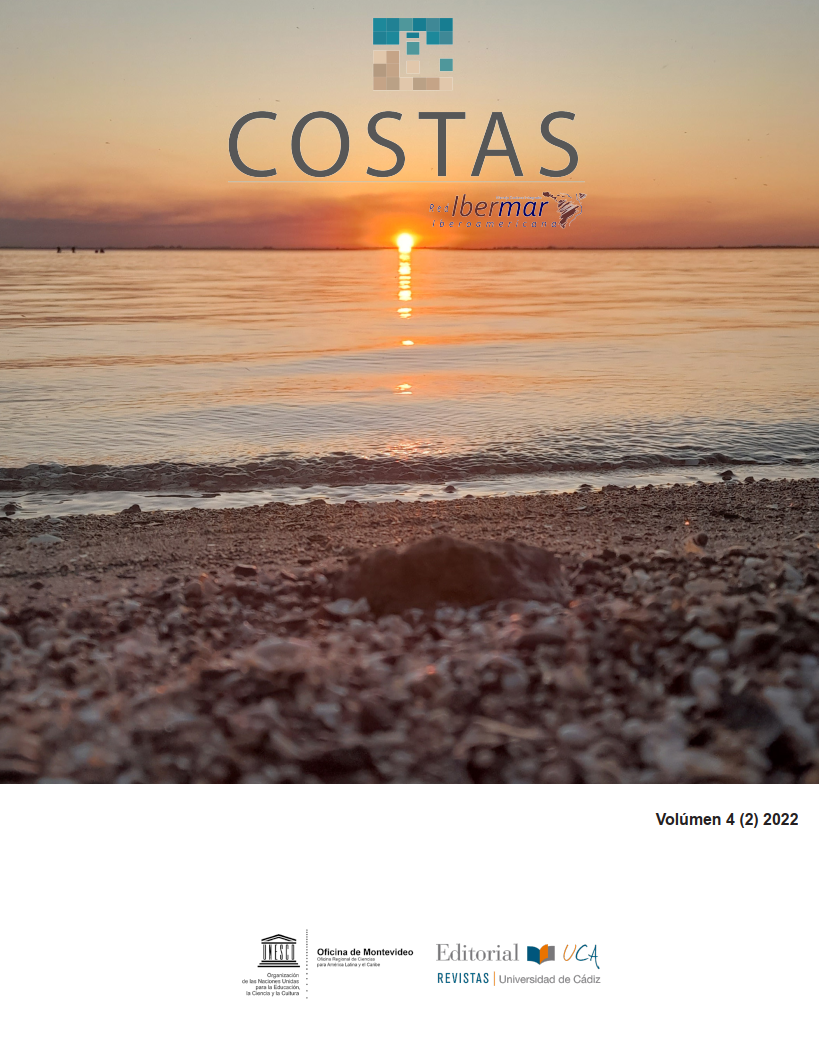The Role of the State in supporting the implementation of the Orla Project in Ceará, Brasil

DOI
https://doi.org/10.25267/Costas.2023.v4.i2.0604Info
Abstract
The seafront of the state of Ceará has been suffering constant aggression and impacts arising from the lack of planning, disorderly occupation and natural phenomena that affect the municipalities of the coastal zone, which leads to the need for the State to establish a new governmental practice in planning and use of that space. To this end, in 2001, the Federal Government, through the Ministry of the Environment (MMA) and the Union Heritage Secretariat (SPU), launched the Integrated Management Project of the Seashore – Orla Project, in order to contribute, in national scale, for the application of general guidelines for disciplining the use and occupation of the waterfront. The Orla Project encourages coastal municipalities to plan and develop the necessary actions, in an integrated and participatory manner, to solve issues related to the use and occupation of these spaces, through the elaboration of their Integrated Waterfront Management Plans – PGIs. This report proposes to analyze the actions of the State Coordination of the Orla Project in Ceará. In 2011, the Council for Environmental Policies and Management (CONPAM) raised state funds to carry out ten training workshops, two per municipality, as provided for in the Project manuals. The project was a successful experience in its objectives, as it trained municipal managers to prepare the aforementioned plan and implement actions for the conservation of the waterfront. Its execution resulted in the request by the other coastal municipalities for the replication of the activities carried out, with the possibility of expanding the scope of action. However, in the long term, it was observed that the agenda agreed at the end of the 2º workshop wasn’t consolidated, and it wasn’t possible to prepare the PGI. It was found that the low effectiveness in the preparation of plans is due, in addition to other factors, to the discontinuity of municipal management and the lack of legislation that requires a local instrument for the use and occupation of the coastal zone. This demonstrates the need to prioritize coastal management by the three governmental spheres and by civil society, especially through compatibility with other territorial planning instruments.
Keywords
Supporting Agencies
How to Cite
License
Copyright (c) 2023 Mônica Carvalho Freitas, Magda Marinho Braga, Wersângela Cunha Duaví, Antônio Lucas Barreira Rodrigues, Kelven Pinheiro de Sousa.

This work is licensed under a Creative Commons Attribution-NonCommercial-NoDerivatives 4.0 International License.
References
BRASIL. Ministério do Meio Ambiente. Ministério do Planejamento, Orçamento e Gestão. Projeto Orla: manual de gestão. Brasília: MMA, 2006a
BRASIL. Ministério do Meio Ambiente. Ministério do Planejamento, Orçamento e Gestão. Projeto Orla: fundamentos para a gestão integrada. Brasília: MMA, 2006b.
BRASIL. Lei nº 13.240, de 30 de dezembro de 2015. Dispõe sobre a administração, a alienação, a transferência de gestão de imóveis da União e seu uso para a constituição de fundos. Disponível em: <http://www.planalto.gov.br/ccivil_03/_Ato2015-2018/2015/Lei/L13240.htm>. Acesso em: 03 ago. 2019.
CASEMIRO, M. B.; BARRA, O. A. O. L.; MATOS, F. O.; VASCONCELOS, F. P. Planejamento ambiental costeiro no Brasil: um olhar crítico sobre o Projeto Orla. Interespaço, Revista de Geografia e Interdisciplinaridade. v. 4, n. 14, maio/ago. 2018
MUEHE, D.; LINS-DE-BARROS, F. M.; PINHEIRO, L. S. Geografia Marinha: oceanos e costas na perspectiva de geógrafos. 1. ed. Rio de Janeiro: Caroline Fontelles Ternes, 2020.
OLIVEIRA, M. R. L.; NICOLODI, J. L. A Gestão Costeira no Brasil e os dez anos do Projeto Orla. Uma análise sob a ótica do poder público. Revista da Gestão Costeira Integrada, v. 12(1), p. 89-98, 2012.
PAULA, D. P.; BARROS, E. L., GUERRA, R. G. P.; DIAS, J. A. A gestão costeira no Ceará (Nordeste, Brasil): políticas, estratégias e experiências. Saindo da zona de conforto: a interdisciplinaridade das zonas costeiras - Tomo VIII da Rede BRASPOR, Rio de Janeiro, 2019
WILKE, B. S. Governança ambiental e gerenciamento costeiro: caso da cidade de Fortaleza/CE. 2015. 65 f. Dissertação (Mestrado em Gerenciamento Costeiro). Instituto de Oceanografia, Universidade Federal do Rio Grande, Rio Grande, 2015.






